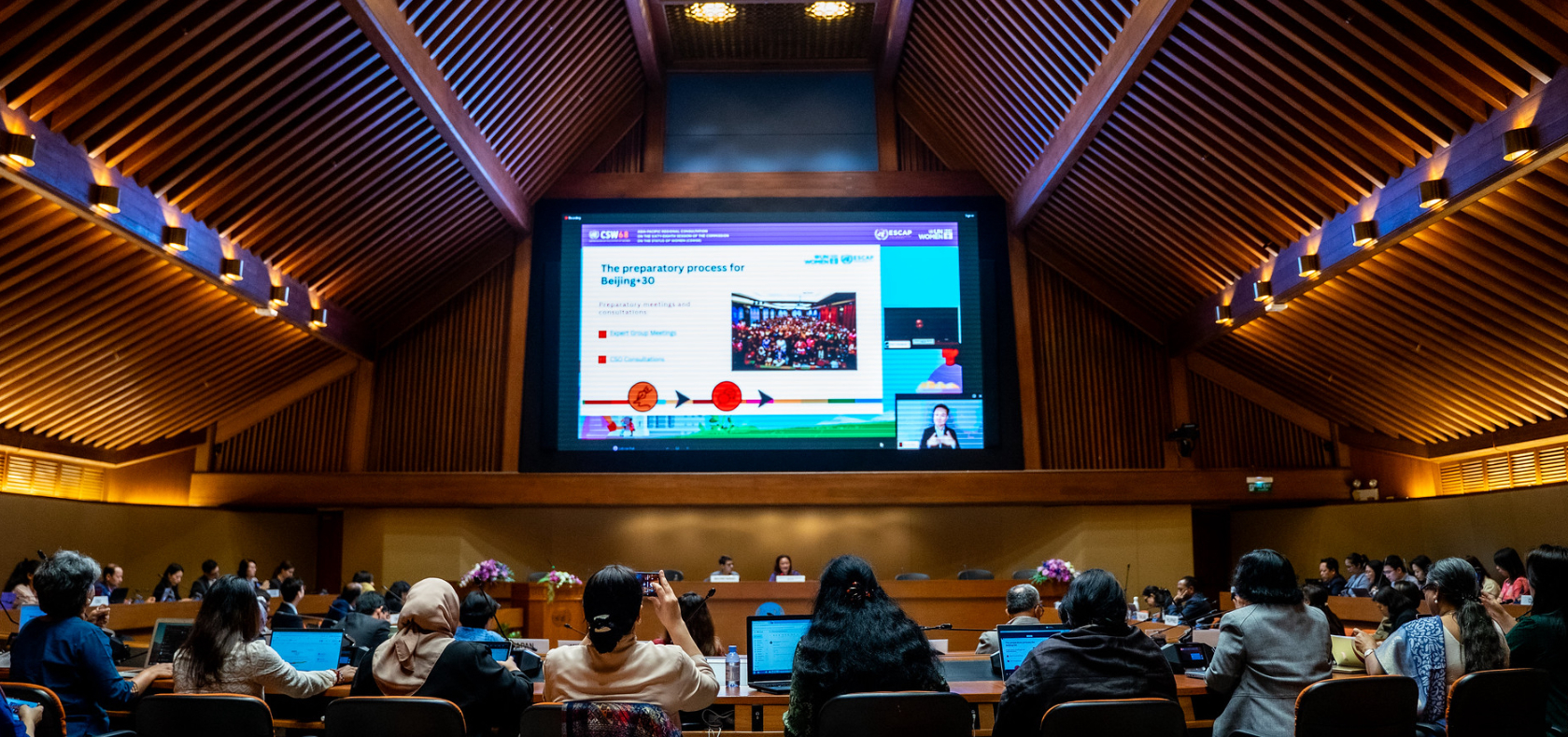Asia-Pacific gears up for regional Beijing+30 review on gender equality
Date:

Countries in the Asia-Pacific region joined an informative session on the upcoming 30+ review of the Beijing Declaration and Platform for Action, a set of gender-equality commitments agreed at the Fourth World Conference on Women in Beijing in 1995.
The session was held in Bangkok at the Asia-Pacific Regional Consultation on the priority theme for the 68th session of the Commission on the Status of Women (CSW 68), held 6-7 February, jointly convened by the UN’s Economic and Social Commission for Asia and the Pacific (ESCAP) and UN Women’s Regional Office for Asia and the Pacific.
The reviews are held every five years, at national, regional and global levels, explained Channe Lindstrøm Oguzhan, social affairs officer at ESCAP. This year’s will be Beijing + 30, with the country-level reviews comprising the first step of the process, followed by the regional reviews. Participants were reminded of the deadlines - and available support -for their contributions.
“The national reports are very important,” said Catarina Carvalho, chief of UN Women’s Intergovernmental Support Division, joining by video link. “These are the sources for the regional synthesis report and our global report” and are key to assessing the implementation of the Beijing agreement, she said.
“As UN women, we stand ready to support and provide any detailed briefings on how to submit to the online platform. You can also request support from our country offices for the national reviews,” added Carvalho.
The submitted national reviews will inform the Beijing+30 Asia-Pacific Ministerial Conference, to be held in Bangkok on 19-21 November, preceded by a forum of civil society organizations to ensure their input.
The outcome of that regional review will then feed in to the global Beijing +30 review, to be deliberated at next year’s CSW, the 69th edition, in March 2025.
Some progress but also setbacks for gender equality in the region
Speaking at the Beijing+30 informative session, Oguzhan gave a brief overview of some of the progress points and persistent challenges since the previous review five years ago, Beijing +25, produced the Asia-Pacific Declaration on Advancing Gender Equality and Women’s Empowerment.
“On a positive note, the proportion of women in political leadership is increasing,” she said. “However, with an average of 20.8 percent of parliamentarians being women, the region is still below the global average of 26.5 percent, which is still very far from achieving parity overall.” Only five countries in the ESCAP region have more than a quarter of women cabinet ministers, with several having none, she pointed out.
She also drew attention to the “alarmingly high rates of gender-based violence,” especially during the COVID-19 pandemic, which not only harms the women directly affected but also exacerbates wider inequalities.
Thirdly, she provided some figures on the “general and regrettable long-term trend of a decrease in female labour force participation in the ESCAP region,” with the ratio of women to men in the workforce falling from 0.64 in 1995 to 0.59 in 2023.
Reducing the gender gap in the labour force by a quarter “could add as much as 3.2 trillion USD to the overall GDP of the Asia-Pacific region,” she said. “So investing in women is a worthwhile investment indeed.”
Next steps in the regional review process
Member states are called on to complete an online survey and national reports. ESCAP have also established an Asia-Pacific gender portal to provide data and other support for member states, Oguzhan explained.
UN Women’s Carvalho outlined the structure of the reports in to six sections, including an analysis (in Section 3) of measures, achievements and challenges across the 12 designated critical areas.
She also emphasized the importance of aligning the Beijing +30 review process with the UN’s Agenda 2030 on sustainable development. The output from the overall Beijing +30 review will be a political declaration that “will result in renewed commitments and clear sets of priority actions,” she said.